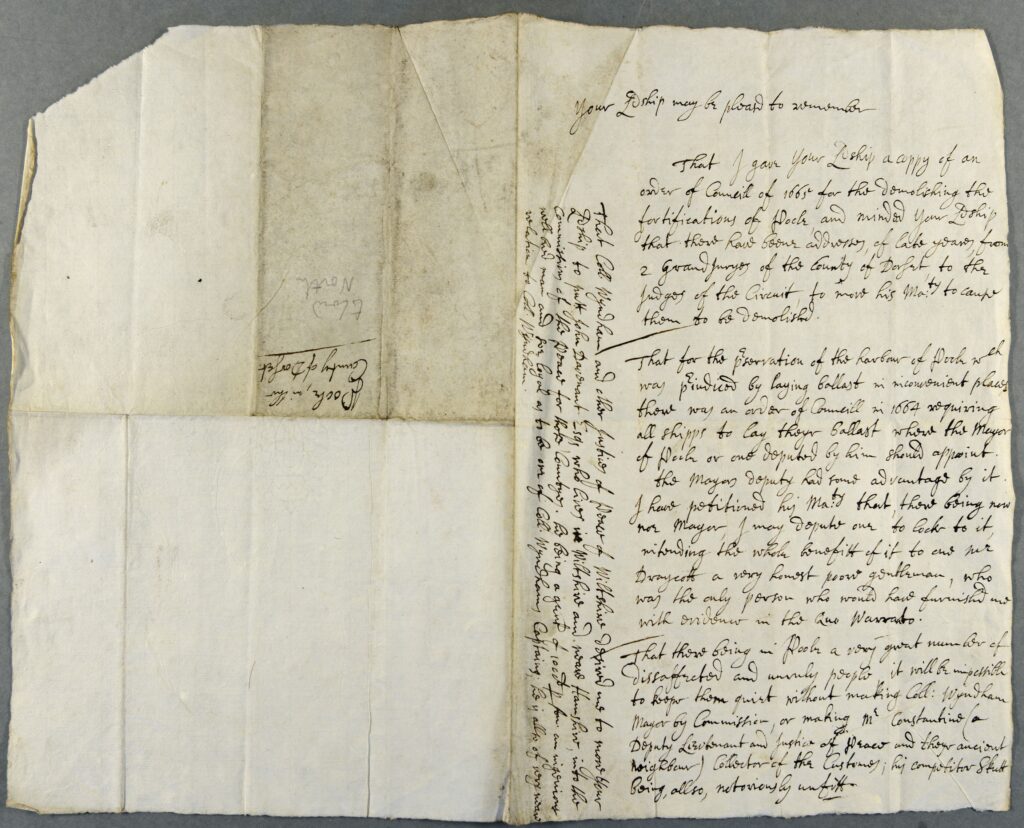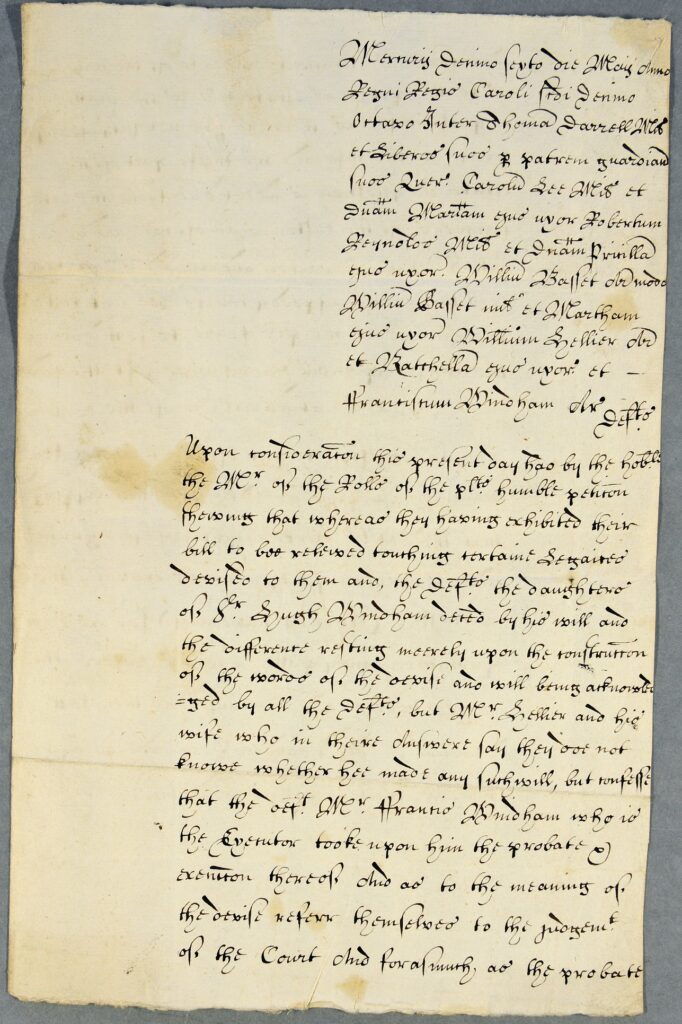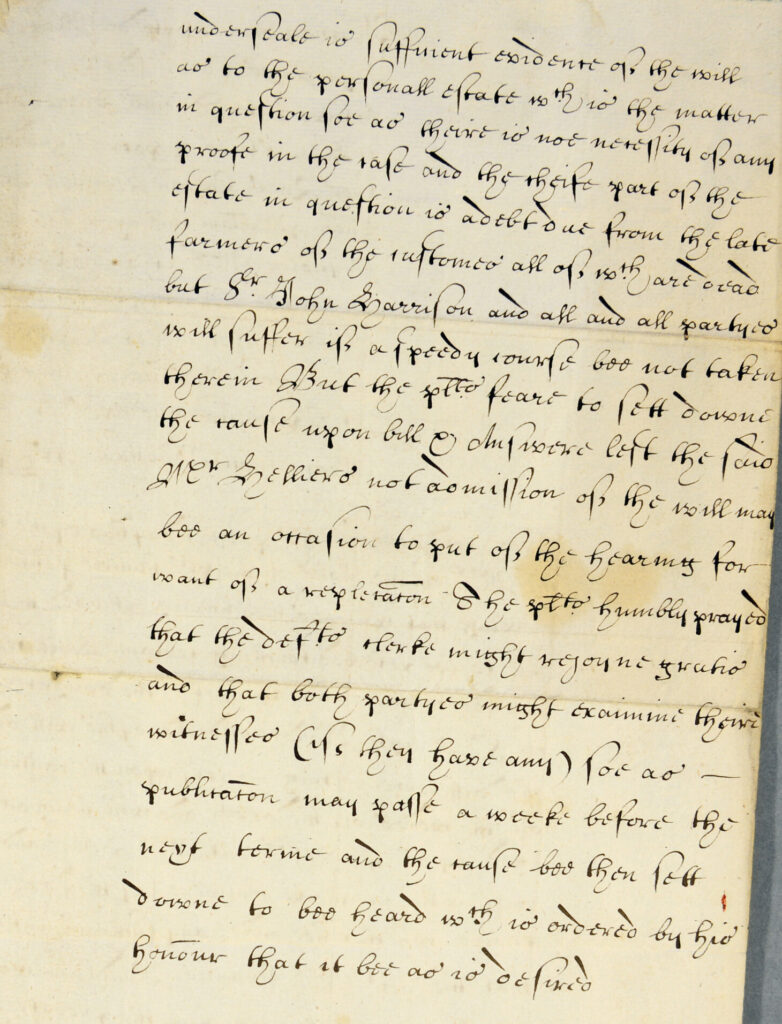In this blog, Jenny Oliver and David Watkins from Poole Museum explore a recent purchase made by Dorset Archives Trust and what it can tell us about the history of Poole…
—

Dorset History Centre with funding from Dorset Archives Trust has recently acquired a letter, undated but probably late 17th century, making a number of apparently unrelated points on Poole. It mentions the town’s fortifications, the management of ballast and the suitability of certain individuals to keep the ‘disaffected and unruly people’ of Poole under control. The writer is unknown, but the recipient is believed to be Lord North, Lord Keeper of the Great Seal.

The document relates to Poole at a critical time in the town’s and the nation’s history. Charles II was tightening his control of towns and boroughs, particularly those seen as disloyal, by pressuring them to surrender their charters and accept new ones, giving him powers to appoint key officials. Many boroughs submitted to this process, but a few did not, and Poole was one of them.
On 27th June 1683, a writ of quo warranto was issued against Poole, suspending all its cherished rights and privileges. The mayor, James Hallybread and the corporation responded with a humble petition to the king, expressing the town’s loyalty and pleading to retain their ancient rights. Merchant Benjamin Skutt delivered it to the king who gave a gracious answer that it ‘should bee settled as you prayed for’.

The writer of the document is clearly listing reasons why Poole should not have its charter restored. One point is that the town’s defences, the ditch, walls and towngate, have still not been completely removed, in defiance of a 1665 warrant for ‘immediate completion of demolishing the works at Poole, levelling the fences, ramparts etc.’
Another point concerns the ballast quay built by the corporation under a king’s council order allowing them to regulate ballast in the harbour. They now intend to use the quay’s revenues to defend their charter. The writer suggests that ‘there being now no mayor’ a new order could be obtained, and the quay removed so that the town no longer benefits. The fact that there is no mayor dates the document between November 1683, when James Hallybread signed his last entry as mayor, and March 1685, the date of the first entry by the new mayor.

As a candidate for mayor, the writer names John Wyndham, M.P. for Salisbury and colonel of militia. For Collector of Customs, he suggests ‘Mr. Constantine’, probably Henry Constantine of Merley, rejecting ‘his competitor Skutt’ as ‘notoriously unfitt’. This is possibly Allen Skutt, a former mayor of Poole.
Early in 1684 the Justices and Grand Jury of Dorset wrote to the king petitioning against the incorporation of Poole, ‘a sanctuary to debtors and criminals’. They asked particularly that Poole ‘be not again created a county’. Unsurprisingly, the charter was not restored. In February 1685, King Charles died and was succeeded by his brother James. John Wyndham was appointed mayor of Poole by commission and remained in office until 1688 with Allen Skutt as his deputy.

